Reiki Healers
Reiki is an ancient healing practice that has gained considerable recognition in the wellness industry because of its holistic perspective on health and well-being.
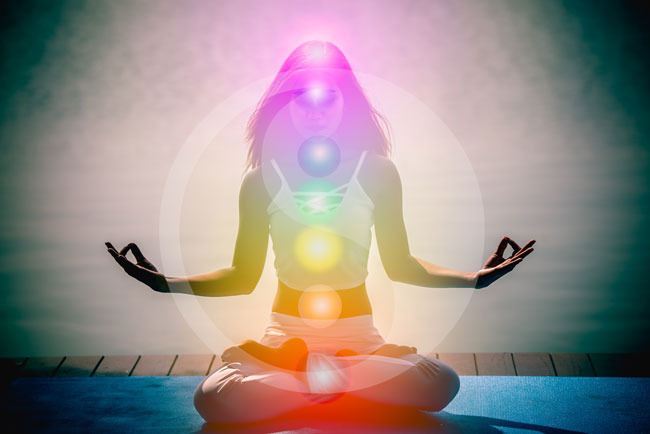
Reiki is a popular worldwide form of energy healing originating from Japan in that it is believed to be able to provide relaxation and restore health. Despite its comforting and curative nature that has widely been perceived, there are some risks associated with Reiki that cannot be overlooked.
Are there any risks associated with Reiki?
Other risks associated with Reiki are emotional dependence, incompetent practitioners, and abandoning medical treatments. While generally safe, these expose risks to effectiveness and welfare.
For this reason, by knowing Reiki’s deficiencies and applying it along with professional medical treatments, we will ensure a healthy utilization of this technique in answering holistic health. Sometimes this leads to emotional reliance when clients rely on Reiki for their emotional stability instead of facing their problems.
Moreover, some practitioners who are not well-trained in offering therapies do not work or further exacerbate the conditions of people. There is also a delay in necessary medical treatments when patients rely solely on Reiki leading to compromised health statuses. Combining the two approaches helps reduce these risks for better living.
Can Reiki cause emotional dependency?
Yes, Reiki can cause emotional dependency when clients seek frequent sessions for temporary relief. This reliance may hinder personal growth, emphasizing the importance of using Reiki responsibly alongside other self-care strategies to promote emotional well-being and independence.
The relaxation and emotional support offered by this technique can make clients prefer using it instead of addressing any underlying problems independently. Such a relationship could stop people from gaining required coping skills thus derailing personal growth within them.
This requires practitioners to urge clients to incorporate other self-care strategies including meditation, and physical fitness exercises along with counseling in which they also need to practice its use as part of a broader self-care program tailored across different life aspects. A more dignified approach to applying this remedy should be adopted, otherwise, it would end up being an addictive therapy.

Are there risks of using Reiki for serious medical conditions?
Yes, when Reiki replaces necessary medical care, it can be a threat to life. Reiki should never replace professional healthcare but just complement it.
If Reiki is misused as the primary therapy, it can result in delaying essential interventions, worsening the condition, and causing severe health consequences.
Those who prefer using Reiki to medically tested procedures put themselves at risk of inadequate treatment for critical health conditions. It is not possible for Reiki alone to deal with complicated medical problems. People should tell their clinicians about any reiki practice they may have started doing so that this complements rather than substitutes essential medical therapies.
This approach will ensure that although people are taking into consideration other factors they still receive appropriate medicinal support in addition to getting holistic care from both sides of medicine and complementary therapies respectively thus ensuring the safe and effective use of reiki.
How can unqualified Reiki practitioners pose a risk?
Unqualified Reiki practitioners pose risks by offering ineffective or harmful sessions and misleading advice. They may fail to recognize conditions requiring medical attention. Ensuring practitioners are certified and reputable is essential for safe, effective Reiki experiences and protecting clients’ health and well-being.
Without proper training, practitioners may not understand the principles of energy healing or adhere to ethical standards, leading to subpar care. They might provide inaccurate guidance that could delay necessary medical interventions. Clients should verify practitioners’ credentials, seek recommendations, and trust their instincts when selecting a Reiki professional. This helps ensure that the practitioner is qualified to provide safe, effective care and minimizes the risk of negative outcomes. Choosing certified practitioners committed to ethical practices ensures Reiki sessions are beneficial and trustworthy.
What are the ethical concerns in Reiki practice?
Ethical concerns in Reiki practice include maintaining client confidentiality, avoiding false claims about healing powers, and ensuring informed consent. The practitioners must therefore respect the client’s welfare by being truthful and professional in their services to them.
Hence, ethical Reiki practitioners should educate clients on how it works, its benefits, and its limitations while managing expectations. This implies that they should not say that they can cure certain diseases but instead offer support as people receive conventional treatment alongside it. In order to maintain the trust of clients and protect their privacy a practitioner must observe rules regarding confidentiality.
Thus as far as possible it is important for customers to be aware if anything goes wrong during any medical procedures taking place on them at that time if ever those happens then there can be informed consent so that one cannot complain later having been done to him something he did not want or know about. Also these individuals must continuously learn so as meet ethical demands for their profession.

Can Reiki interfere with conventional medical treatments?
Reiki is generally safe and unlikely to interfere with medical treatments when used appropriately. However, prioritizing Reiki over necessary medical care can delay essential interventions. It’s important to use Reiki as a complementary therapy, ensuring it supports rather than replaces conventional medical treatments.
As much as reiki may offer comfort to patients during this period; it does not substitute basic medical care at any given point in time. A doctor needs to know if one has received any reiki sessions and how this fits into the overall healthcare plan that has already been established for them/their patient.
This will prevent misunderstandings between the two groups brought about by miscommunication amongst themselves Pragmatic inclusion of both reiki healers’ interests (holistic approach) as well as respect for conventional medicine would thus produce favorable results among patients turned by fear of vetting mainstream medicine or mistaking it for alternative medication.
How does one minimize risks associated with Reiki?
Minimize Reiki risks by choosing qualified practitioners, maintaining realistic expectations, and using it as a complementary therapy. Verify credentials, communicate with healthcare providers, and ensure Reiki aligns with overall health goals for safe, effective use that supports well-being.
It is, thus, of the essence that clients seek certified Reiki practitioners with a good reputation and experience. Open communication by the client with the Reiki practitioner and healthcare providers will ensure a cohesive treatment plan that respects the boundaries and capabilities of each modality.
Realistic education a client must be given about what Reiki can offer needs to be used only as a support tool and not independently of any treatment. Appreciating the limitations of the therapy and applying it in a very thoughtful manner within the more significant health strategy allows the accrual of maximum benefit while potential drawbacks are minimized, hence ensuring the safety and benefits of the Reiki experience.
Wrapping Up!
While there are some likely benefits to Reiki, the practice is not without risk. Understanding issues of dependency, unqualified masters or practitioners, and the safe inclusion of Reiki within conventional medical treatment offers a client an informed decision. It is only through the guarantee of safe practice
Reiki Healers
Reiki is an ancient healing practice that has gained considerable recognition in the wellness industry because of its holistic perspective on health and well-being.
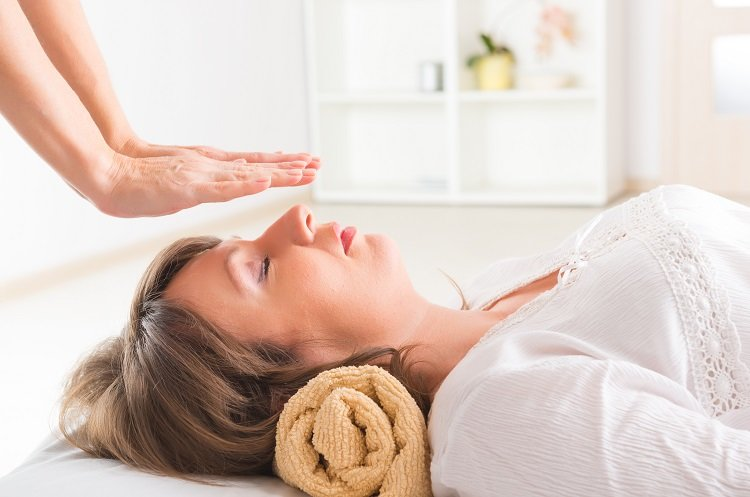
Reiki, a holistic therapy, is becoming popular for its mild yet profound effects on well-being. This technique uses energy management to restore health with the promise of physical benefits. Thus, one must understand how Reiki works in case somebody wants to try this method, which is non-invasive and helps to heal not only physically related conditions but also emotional and spiritual imbalances.
What is Reiki Detoxification?
Reiki detoxification is the process of clearing physical, emotional, and energetic blockages. During a session, Reiki energy promotes relaxation and balance, aiding the body’s natural detox processes. This holistic approach can result in improved energy flow, supporting overall healing and well-being.
Reiki practitioners provide healing energy through their hands that flows into the client’s body and stimulates detoxification and the release of stagnant energies. The process enables the body to attain the strength of excretory competence, thus bringing health and clarity to the emotions. Regular sessions can enhance detoxification, and it could turn cumulative, further helping the body’s self-healing abilities and keeping it in balance.
What are the steps involved in a Reiki healing session?
Reiki healing by the practitioner requires placing hands lightly on or above the recipient’s body to channel universal life energy. The idea is to relax, eliminate stress, and help the mechanism of the healing of the body by correcting the flow of energy. The procedure starts with an initial consultation then the session where hands would be laid on and finally the sensations received during the session or what intuition has been gathered.
First, there is an initial interview with the Reiki practitioner to assess the needs of the recipient and discuss concerns the recipient may be having. The session typically consists of light, powerless laying of hands on or above the body in a series of positions that channel universal life energy. This flow works to balance the recipient’s energy, promoting relaxation and reducing stress. Afterwards a discussion is held about the recipient’s experience and what insight might have been gained. The process aids the self-healing capability of the body and generally contributes to good health.
What does a first consultation look like in a Reiki session?
It begins by addressing the health concerns and the aims of the recipient with the Reiki practitioner. This will enable him/her to adjust the session accordingly, if need be, and set the stage with regard to the energy work.
The initial consultation is an important part of any Reiki session. The recipient can discuss health concerns and goals, and disclose any problems they are experiencing with the Reiki practitioner. This will give the practitioner an idea about the recipient’s need and tailor the session according to that particular need. It is also building up a trusting relationship, which is the formation of an important part of effective energy work. The practitioner may explain the process of Reiki, can answer any questions, and set expectations for the session.
How does the practitioner execute the hand positions during Reiki?
The therapist lightly places their hands onto or over designated areas on the client’s body, working through a series of positions designed to channel and balance healing energies. During a session, the practitioner will place their hands on, or above, particular positions of the recipient’s body.
These are done in order to bring healing energy into the various energy centers, or chakras, of the body. The practitioner lightly touches the body or holds their hands above the body according to the needs and preference levels of the recipient. Each position should balance the energy of the recipient and address areas of tension or blockages. The hands are retained in the position for a few minutes before moving on to the next position.
What can a recipient expect to feel while having a session of Reiki?
The sensations that the recipient may realize are warmth, tingling, or relaxation. Others might experience an emotional release or gain insight into their health and well-being.
These sensations may be experienced during a Reiki session: warmth, tingling, or a deep sense of relaxation, caused by the energy that will be channeled into one’s body. Some might even feel emotional releases, such as crying or laughter, as blockages clear. Others may gain insights or mental clarity related to their health and well-being. Everyone’s experience is different, and results will vary depending on one’s individual needs and sensitivity to energy.
How Does Reiki Aid in Detoxification?
Reiki aids detoxification by enhancing energy flow, promoting relaxation, and reducing stress. This encourages the body’s natural detox processes, helping to remove toxins and restore balance. The gentle energy aligns chakras, supports immune function, and fosters a sense of well-being and rejuvenation.
Reiki gives room for detoxification to take place by meditating on the blocked areas in the pathways. Practitioners hold the notion that when the body is free-flowing, it can expel toxins and promote healing more efficiently. This enhances digestion, improves skin, and heightens general well-being, simply because the body systems are now functioning in unison.
What Can I Expect After a Reiki Session?
After a Reiki session, you may experience deep relaxation, increased energy, or emotional release. Some people report feeling lighter or more balanced, while others may notice detox symptoms like fatigue. These are normal as the body adjusts to energy shifts and healing processes.
These are the effects that comprise the body’s reaction to the healing energy, giving one improvement in mental clarity and physical comfort. Some people feel energized, invigorated, or on top of the world, while others may go through temporary detox symptoms like mild headaches or fatigue because the body is adjusting and changing. Keeping hydrated and having some rest works wonders with Reiki.

Are There Side Effects of Reiki Detox?
Side effects of Reiki detox are usually mild, including fatigue, emotional release, or detox symptoms like headaches. These indicate the body is adjusting and clearing toxins. It’s important to stay hydrated and rest after sessions to support the body’s healing and integration processes.
These are generally mild and temporary and can be seen as positive signs that the body is responding to the Reiki energy. While this removal of toxins and blockages is happening, some people may have vivid dreams or emotional changes; all of which are actually parts of the healing process. Keeping well-hydrated and well-rested after the session will help in minimizing most of these effects and integrating Reiki Energy harmoniously.
How Long Does Reiki Detox Take?
Reiki detox duration varies per individual, depending on their energy balance and blockages. Some feel immediate effects, while others require multiple sessions for noticeable changes. The body’s natural detox and healing processes are gradual, so patience and consistency enhance results.
Factors that will influence how long it takes include lifestyle, amount of stress one has, and the general state of health. If a person continues to have Reiki treatments on a regular basis, the body can gradually build up resistance to the stresses of life and maintain balance over a period of time. In this way, the practitioner can advise on how often sessions should take place in order to be most effective for the detoxification and healing processes.
What Are the Benefits of Reiki Detoxification?
Reiki detoxification benefits include improved energy flow, stress reduction, emotional balance, and enhanced well-being. By removing blockages, Reiki supports physical healing and mental clarity. It promotes relaxation, aids sleep, and boosts overall health by harmonizing the body’s energy.
This is a holistic approach, which not only detoxifies your body but brings peace and self-awareness as well. It adjusts your energy so that you may realize a big improvement in immune function, the ability to focus better and feel energetic. To many people, Reiki detoxification has been beneficial in complementing other wellness practices, promoting health both physically and emotionally.
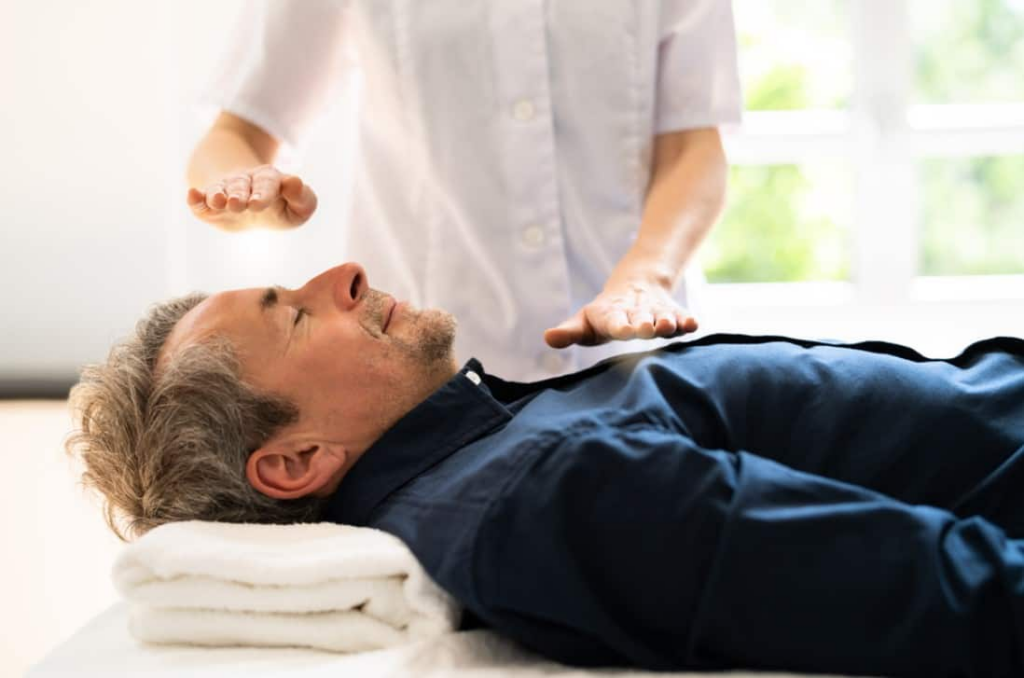
Is Reiki Effective for Stress Relief?
Reiki is effective for stress relief by promoting relaxation and balancing energy. It reduces tension and anxiety, encouraging a calm mind and body. Regular sessions help manage stress levels, improve mood, and support overall well-being, creating a peaceful and harmonious life.
Reiki relaxes the body and mind, allowing stored tension to dissipate. The process not only helps deal with ordinary stressors but very effectively deals with chronic stress, which certainly is a big killer. By providing a regular avenue for relaxation and rebalancing of energy, Reiki does indeed support the development of resilience to stress and, therefore, improvement in the quality of life.
Can Reiki Help with Emotional Healing?
Reiki can help with emotional healing by releasing blockages and balancing energy. It supports emotional well-being, reducing stress and anxiety. The gentle energy promotes self-awareness, emotional clarity, and a sense of peace, aiding in healing past traumas and fostering resilience.
That is where Reiki makes the difference by bringing in clarity and perspective by attending to the two major areas of emotional challenge: now and then. It helps in letting go of emotional burdens taken from life experiences and brings peace and resolution. Reiki works by enhancing an individual’s emotional resilience, helping them travel through life more easily and confidently.
Conclusion
In conclusion, it is through Reiki that there is elimination of poisons from one’s body thus promoting natural cleansing processes. Consequently, embracing this kind of detoxification carries numerous advantages. It is a holistic practice that not only purifies but has profound effects on physical emotional as well as spiritual balance of an individual. Allow Reiki to take you into a refreshed healthier state again!
References
Reiki Healers
Reiki is an ancient healing practice that has gained considerable recognition in the wellness industry because of its holistic perspective on health and well-being.

Reiki is a well-known alternative therapy that claims to be able to heal people through energy. Is it effective? This treatment has been widely used but there are still debates about its efficacy. Those who support it often talk about their own positive experiences, whereas skeptics question scientific evidence. This article presents an analysis of available data and answers common questions in order to give a balanced view of the possible effects of Reiki.
Is there any scientific proof that reiki works?
The scientific evidence for reiki’s effectiveness is insufficient; most studies are based on individual cases rather than large-scale trials. However, some research indicates benefits such as stress reduction or improved well-being while others show no effect at all.
What we need is a more rigorous investigation with larger groups where results can be statistically significant enough to state definitively whether or not this method really works in medical settings. Some researchers consider current research lacking due to small sample size and poor methodology.
Measuring the true impact of reiki is difficult because many outcomes are subjective and may not reflect actual changes in health status, yet personal stories abound about its healing potential which makes it worth exploring further from a mechanistic standpoint too.
Combining conventional medicine with complementary therapies like reiki could improve patient satisfaction levels within hospitals but such interventions should be approached cautiously so that people do not have unrealistic expectations about what they can achieve through them.
How does reiki claim to work scientifically?
Reiki is believed to channel universal energy by practitioners which then promotes healing and balance throughout the body. It enhances the natural ability of human organisms towards the self-recovery process by flowing this energy around our system said concept lacks scientific basis but depends on holistic theory with spiritual explanations behind its effects.
Proponents suggest that it affects one’s biofield i.e., an energy field thought to surround and interpenetrate living bodies (human beings). They think this manipulation of energies decreases stress levels and improves mental and physical health status.
However, there have been no scientific instruments capable of demonstrating existence or otherwise detecting changes in such fields Theories on the transfer of energy mainly derive from. Eastern philosophy where they remain largely speculative until more experiments are done showing what happens physiologically during reiki sessions and whether these coincide with health outcomes.
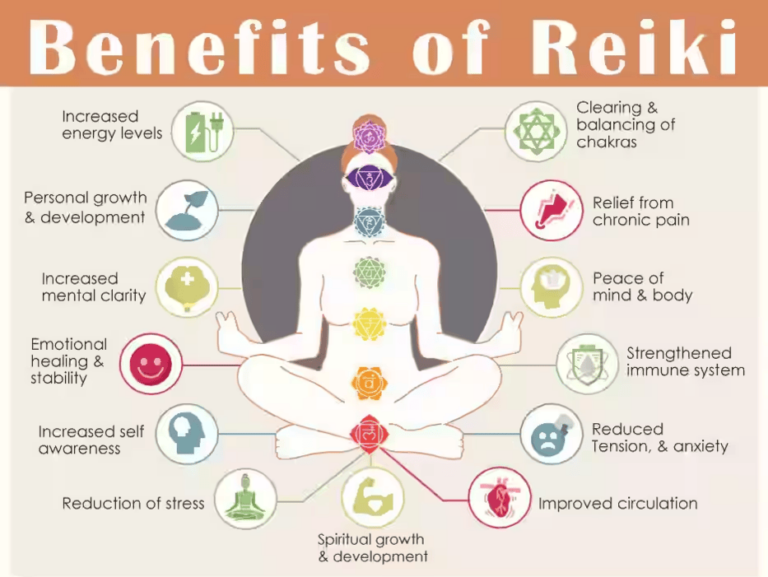
Are there any studies supporting the benefits of reiki?
Some studies have shown positive effects like reduction of stress, pain, or mood enhancement related to Reiki but most were poorly designed comprising a small number of participants with highly variable results that need validation by larger scale research having a solid scientific foundation for therapeutic claims made by this treatment modality.
Available evidence indicates that it may contribute to deep relaxation leading to reduced anxiety states coupled with improved quality sleep among other things. All these findings are based mainly on subjective reports given by those who took part in different controlled trials where methodologies used were not standardized thus introducing bias towards certain outcome measures being favored over others.
More robust designs could be achieved if investigators collaborated more closely with practitioners so that their combined expertise would guide design clearer picture regarding the potential impact that will emerge from such collaborative efforts Current knowledge suggests that while reiki can serve as an adjunctive therapy alongside conventional medicine, it should never replace them altogether.
Does Reiki work on mental health?
Reiki is said to enhance mental health by making one relaxed and reducing stress. Some users report improvements in mood and a general emotional balance after sessions.
While these results are very promising, additional and rigorous research is required to ascertain what place this practice holds in the treatment of mental health issues and what its long-term impact can be. Preliminary studies and anecdotal evidence suggest that Reiki can be used to treat symptoms of anxiety, depression, and stress-related disorders.
That could be due to the restful quality of the process and the fact that it can heal in a holistic way. Although such testimonials are very positive, concrete scientific evidence is still not very convincing.
Integrating Reiki as a supplementary modality to supplement the standard conventional methods of treating psychiatric conditions may give more support to patients who are concerned about holistic treatments. Reiki should be approached with much practicality and as an adjunct to a complete mental health treatment regimen.
Is Reiki considered a legitimate form of therapy by medical professionals
Reiki remains relatively unknown to most medical professionals as a valid therapy. Some seem to support it as a complementing practice, while others are skeptical about its efficiency in the absence of scientific proof.
Its acceptance varies and there is growing interest in the integration of Reiki into conventional health care to provide holistic support to patients. Reiki is being used in some settings alongside conventional treatment for the comfort and satisfaction of patients. However, it is a complementing form of therapy and not a substitute for medical treatment, as emphasized by practitioners.
The trend in integrative medicine is being accepted by organizations like the American Hospital Association, even if it cannot be officially supported. Further studies and the exposure of Reiki practitioners to medical professionals could bring more awareness and acceptance. But it’s the open attitude toward the limitations and gains that will truly make it acceptable in healthcare.
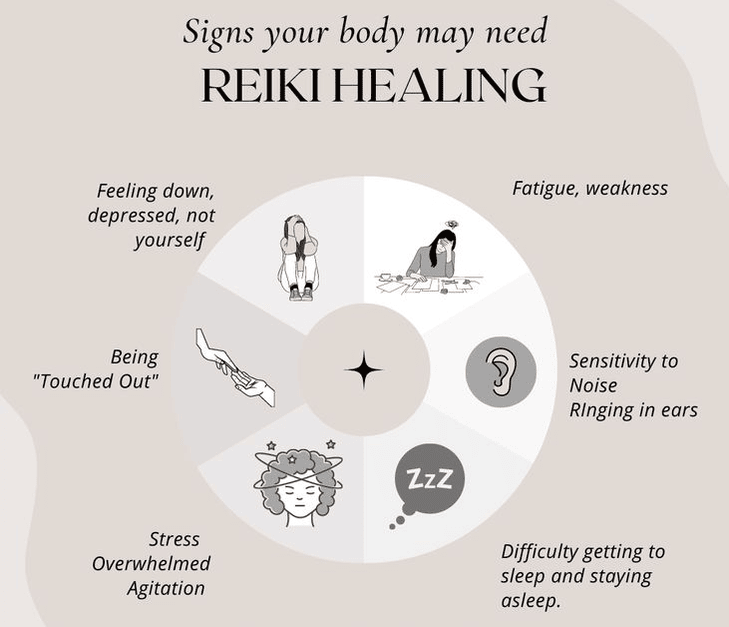
How does Reiki compare with other alternative therapies?
Reiki compares to other alternative therapies in its holistic approach, emphasizing energy balance and healing. Like acupuncture and meditation, Reiki focuses on non-invasive techniques to promote well-being. Differences lie in their methodologies and evidence bases, with varying levels of scientific support and cultural origins.
Reiki is one of the many other alternative therapies that help the body heal itself with various gentle techniques. Acupuncture is based on stimulation of designated points by the use of needles, while meditation is done by focusing on the mind to reach relaxation.
Each modality has different cultural and historical backgrounds, hence various therapeutic practices. The noninvasive trait of Reiki allows many access to it, though it remains a therapy whose effectiveness needs far more validation. Knowing the differences helps one select therapies that best suit their inclination and needs.
What is the placebo effect's role in Reiki?
The placebo effect might be quite pervasive in Reiki because belief in treatment efficacy amplifies the perception of the benefit. Positive expectations can evoke veritable symptom relief.
This needs to be understood for the sake of knowing how Reiki works and how it can be appropriately combined with traditional treatments. The placebo effect can be described as one of the psychological effects, where the belief in treatment efficiency can lead to symptom relief. In Reiki, the soothing environment and healing touch may amplify this response.
Though placebo-induced improvements are real, they do not obviate establishment of the scientific validation of Reiki’s specific mechanisms. This application serves as a reminder for the practitioner to function from realistic expectations, and make proper informed consent about Reiki’s role in holistic care. It does not undermine the value of Reiki, but encourages a balanced sense of the value for its use.
Wrapping Up!
The only way Reiki can fit into modern healthcare is when used as an additional therapy that supports holistic healing together with conventional methods. Whether or not one believes in its powers, approaching Reiki from an educated standpoint will enable them to make informed decisions regarding their health.
Reiki Healers
Reiki is an ancient healing practice that has gained considerable recognition in the wellness industry because of its holistic perspective on health and well-being.
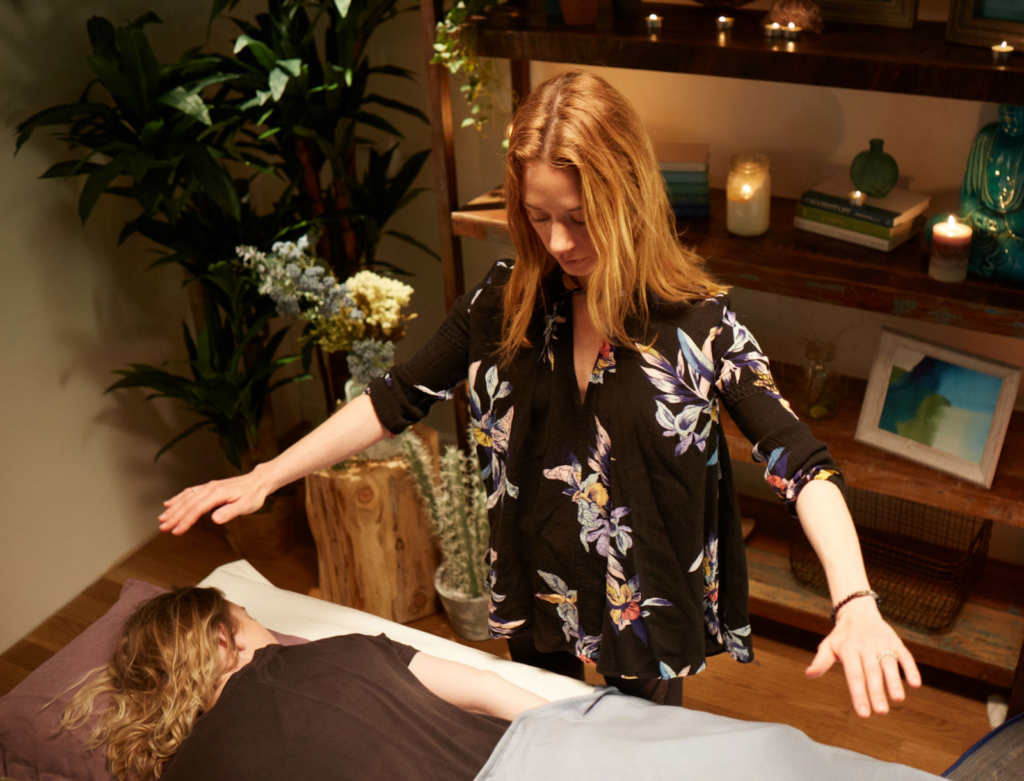
Reiki is an ancient healing practice that has gained considerable recognition in the wellness industry because of its holistic perspective on health and well-being. It is important to note that this practice originated from Japan and it refers to a method of energy healing that involves the transmission or channeling of universal life energy through the practitioner’s palms to another person.
An Overview of Reiki Healing
What is Reiki?
Reiki is said to be a Japanese art used for healing spiritually. The meaning of “Rei” in Japanese is the word “Direct contact with God’s Wisdom” or “Of Being Above.” In addition, “ki” stands for life force; therefore, Rei plus ki signifies spiritually guided life force energy.
Historical Development and Cultural Significance
Originally founded by Mikao Usui in early 20th century Japan, this mystical tradition has transformed over time into a more structured practice that transcends different societies across the world. Though initially meant for spiritual enlightenment purposes, today it would not be wrong if one perceives Reiki from a therapeutic point especially when comparing between western paradigms and other cultures.
Fundamental Elements of Reiki Healing
Reiki is based on the belief that there’s an unseen “life force energy” flowing through everyone. This life force is what makes us alive. Whenever one’s life force energy becomes low, then it increases the chances of becoming ill or feeling stressed and when high; we tend to be more able to feel joy and remain healthy.
- Non-Interference Principle: In contrast to other healing practices, Reiki does not need the healer to select specific parts of the body for its flow.
- Equilibrium Principle: Reiki aims to bring about balance within the body, enhancing physical, mental, and emotional well-being.
- Self-Healing Principle: Reiki prompts the person receiving it to enhance their own natural healing abilities.
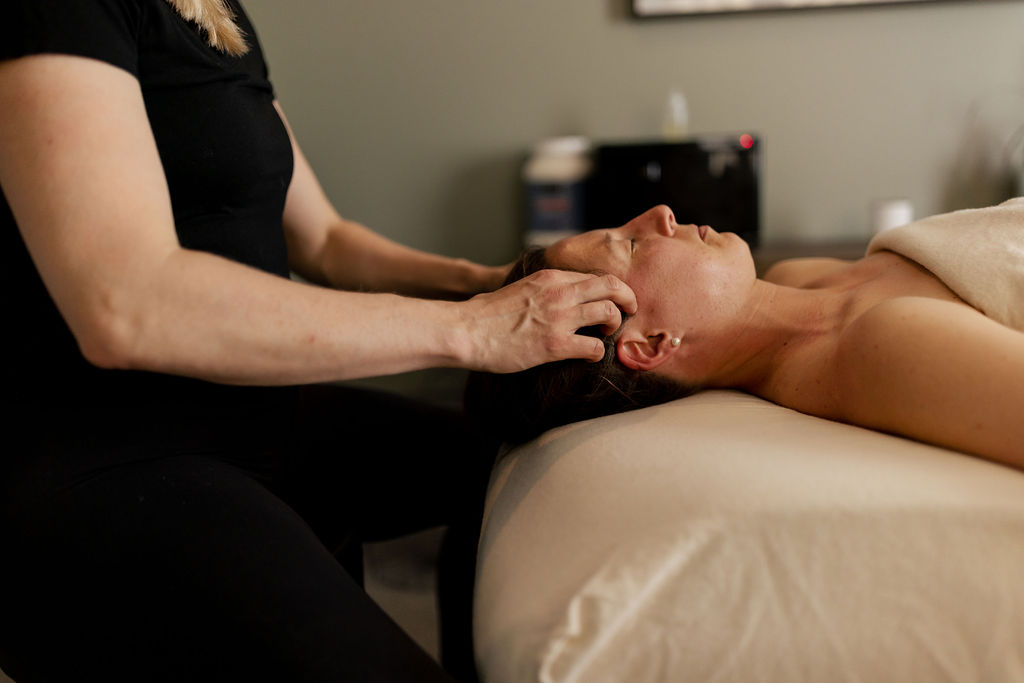
Reiki’s Advantages for General Well-being
The versatility and efficiency of Reiki in promoting holistic health make it well known. This section examines how Reiki benefits one’s overall health across the physical, mental, emotional, and spiritual dimensions with specific emphasis on this practice’s ability to significantly enhance life values.
Benefits for Physical Health
Many Reiki practitioners and receivers claim that they get better after Reiki sessions for various physical illnesses. Some key ones include:
- Pain Management: Studies have illustrated that stress often worsens pain symptoms from migraines, arthritis, sciatica, and muscle aches; however, by facilitating energy flow as well as decreasing stress levels, reiki can relieve these painful conditions.
- Boosted Healing and Recovery: Currently, however alternative therapies frequently serve as an adjunctive intervention in hospitals and clinics to expedite recovery after surgery or illness which include the body’s own healing mechanism.
- Better Digestion and Sleep Quality: In addition to improving sleep patterns through inducing deep relaxation states, reiki also enhances digestion which are actually vital elements of general health.
Mental and Emotional Benefits
While the mind has benefited from the significant aspects of reiki on physical health,
- Stress Reduction: Regular sessions of reiki can lower so much stress which is a primary cause of other health problems. It is believed to relieve both the physical body and mind through balancing energies in them.
- Clear Thinking and Concentration Skills: For instance, Reiki healers have said that it helps in clearing their minds, resulting in increased concentration abilities, hence overcoming issues such as anxiety or depression.
- Emotional Restoration: Helping people with negative feelings or trauma experiences leads to growth in emotional strength or positive outlooks towards life, this may imply a sense of purpose.
Spiritual/Holistic Benefits
Reiki goes beyond physical healing into spirituality, which forms its holistic approach;
- Increased Spiritual Awareness: It seems like many people find that becoming open to greater spirituality or a closer relationship with a higher power, irrespective of religious beliefs, occurs after experiencing Reiki.
- Self Reflection and Development: Through deep personal insight, self-awareness can be achieved as well as facilitating personal growth with self-improvement being encouraged.
Step-by-Step Guide: What Happens During a Reiki Healing Session?
A Reiki healing session is one that contains several stages to help an individual relax and balance his energy via several stages.
- Initial Discussion: The session starts off with a talk about health issues, goals, and expectations between the practitioner and the receiver so that the session may be tailored to the needs of the individual.
- Preparation: The client lies fully clothed on a treatment table in a quiet, comfortable setting. The atmosphere is usually relaxing, enhanced by soft music or dimmed lighting.
- Hand Positions: The practitioner passively and gently places his hands successively on or above various parts of the body in a position aimed at covering all the major areas of the body, which correspond to the energy centers or chakras.
- Energy Flow: Hands are kept in each position for a few minutes, allowing Reiki energy to flow, and generally, this brings about relaxation, reduces stress, and balances energy.
- Sensations Experienced: These may be in the form of heat, tingling, or simply a deep sense of calmness or sleepiness. There could also be emotional releases; sometimes, the recipients receive insight into their situations.
- Discussion After the Session: The practitioner will discuss what the recipient experienced, what insight was gained, and what further care they need.
It is a holistic approach working toward the release of energy blockages, thereby enabling the body to use its natural functions to help heal and balance the whole being.
Scientific Insights: What Does the Research Say About Reiki?
Various research into Reiki has shown mixed but promising results, a possible complementary role for various conditions. Herein is included a selection of scientific studies concerning the effectiveness of Reiki on stress reduction, pain management, and well-being:
- Stress and Anxiety Reduction: Reiki treatment can, of course, reduce the level of stress and anxiety. Studies indicated that Reiki relaxes anxiety and improves the relaxation of patients in hospitals, as evidenced by a 2016 study conducted by the Journal of Evidence-Based Complementary and Alternative Medicine. This is associated with its effect of turning on the parasympathetic nervous system to create a relaxed state.
- Pain Management: Many studies have concluded that Reiki can reduce pain. For example, a study in Cancer Nursing says that cancer patients who received Reiki had less pain and an improved quality of life compared to those patients not receiving Reiki. This effect is believed to result from Reiki’s influence on the body’s pain perception and endorphin release.
- Emotional Healing: The evidence shows that Reiki can be used to improve one’s emotional health because it induces relaxation and release of emotions. A 2019 study published by Global Advances in Health and Medicine demonstrated the efficacy of Reiki in reducing symptoms of depression and improving emotional well-being in patients with psychological distress.
- Limitations of Current Research: While the results of many studies appear promising, a number are clearly limited by small sample sizes or, in some cases, a complete lack of controls. Further large-scale studies are needed in the form of randomized controlled trials to fully establish the efficacy of Reiki.
In all, scientific research underlines that Reiki is a powerful means of complementary therapy, especially in reducing stress, managing pain, and dealing with emotional wounds, though studies with more robust power are needed to confirm its complete benefits.
Dispelling Myths and Misconceptions about Reiki
Reiki is often plagued as a modality by misconceptions and skepticism. Let’s start by dispelling some of the most common myths and misunderstandings that surround the treatment modality.
- Myth 1: Reiki Is a Religion
Reiki is not a religion or something that one needs to believe in; it is a spiritual way of healing. One does not necessarily have to have faith in a certain god or religious ceremony. Instead, Reiki would make use of universal life energy, which practitioners say makes up part of all living things. Reiki is offered for every creed and background.
- Myth 2: Reiki Is Only a Placebo
Critics will argue that any observed effects from the practice of Reiki are due solely to the placebo effect. Research into the modality of treatment has illustrated that Reiki produces quantifiable physiological responses, including a reduction in heart rate, blood pressure, and anxiety. There could, in fact, be some placebo aspects to a number of the associated benefits, but studies have actually been able to show that benefits from Reiki can occur along tangible lines beyond that which simple expectation would produce.
- Myth 3: Anyone Can Learn Reiki in an Instant
While Reiki is for anyone, being a good practitioner takes more than just a short training session. It takes commitment and time to practice with guidance from an accredited Reiki Master so that he can understand techniques for energy flow and intuition.
- Myth 4: Reiki Can Cure Serious Illnesses
Reiki itself is not a solution to severe medical conditions but rather a complementary therapy to aid the body in its natural process of healing, reducing stress, and enhancing emotional well-being. This is used in addition to, not as a replacement for, conventional medical treatment.
In clarifying these myths, we value Reiki all the more as a unitary practice that supports well-being and enhances the natural healing of the body.
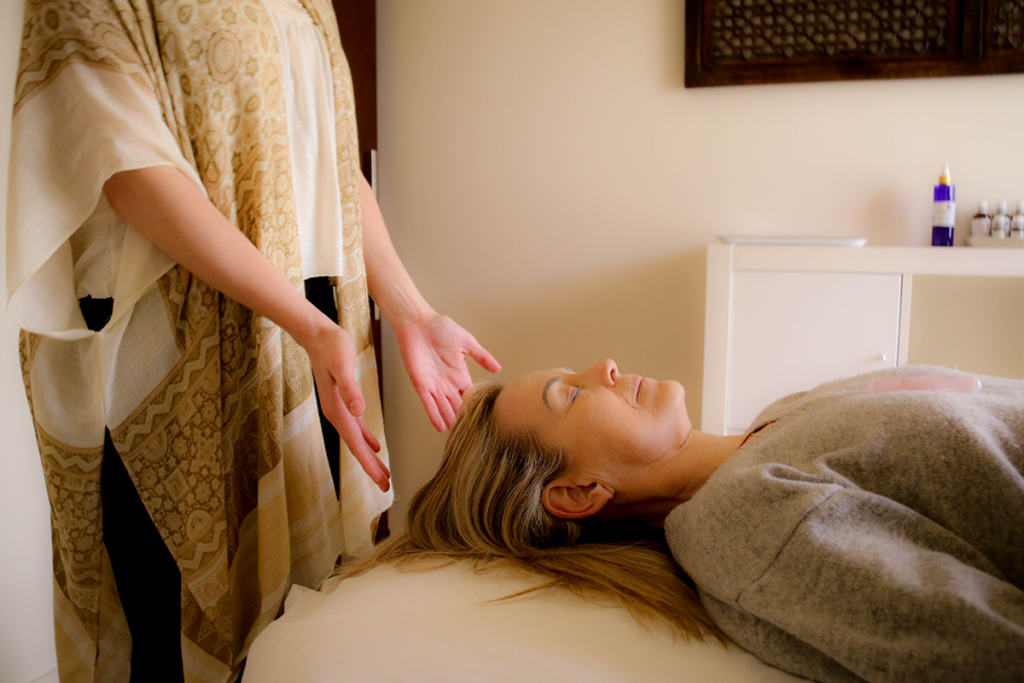
Incorporation of Reiki into Conventional and Complementary Therapies
Reiki is a modality of energy healing that can be easily incorporated with conventional and complementary therapies for overall well-being. Working alongside treatments in medicine and using a more holistic approach helps give a more complete care plan.
Complementing Medical Treatments:
Reiki is quite often used in conjunction with all the conventional medical treatments, from surgery through chemotherapy to medication. It can help:
- Reduce stress and anxiety before and after medical procedures.
- Assist in quicker recovery by the promotion of relaxation and reduction of pain.
- Improve comfort for patients and emotional resilience when undergoing challenging treatments.
Supporting Other Complementary Practices:
Reiki goes well with other complementary practices of acupuncture, massage, and yoga. Integrating Reiki can:
- Improve the effectiveness of such practices through the facilitation of a balanced flow of energy.
- Allow the client to relax and realize deeper states of mindfulness in sessions.
- Support the body’s natural healing processes to work in harmony with other modalities.
Creating a Holistic Approach to Wellness:
The combination of Reiki with other conventional and complementary therapies ensures a holistic approach toward health. Such integration takes care of the physical, emotional, and spiritual facets of the overall well-being of the individual.
On the whole, Reiki is such a versatile tool that complements several health approaches towards balance and harmony. It helps in actively involving a person in his treatment process; hence, it therefore proves to be a treasure in many treatment options.

How to Find and Choose the Right Reiki Practitioner?
Choosing the right Reiki practitioner is essential for a beneficial and successful healing process. In this section, you will find hints that will make it easier for you to choose an experienced reiki healer, as well as various sources of information on where to get one.
Hints for Choosing a Reiki Practitioner
- Certification and Experience: It’s necessary that the practitioner possesses the required certification and has enough experience.
- Recommendations and feedback: Testimonials from people who have tried reiki at least once before are always helpful.
- Personal Connection: Feeling at ease with your reiki healer can determine how successfully your sessions will go.
Places You Can Get Qualified Practitioners
- Professional Associations like the International Association of Reiki Professionals
- Online Directories – these directories are entirely dedicated to providing profiles and credentials of many reiki practitioners all over the world.
- Community Forums- where people share their experiences with others by reviewing different healers from whom they have sought assistance in the past.
Risks, Side Effects, and Cautions of Using Reiki Therapy
While many people perceive reiki therapy as a safe and soft approach to healing, it is still critical to ensure the presence of risks and more importantly, their prevention:
Physical Discomfort: Reiki, in general, does not have any risks associated with its application. However, some people can experience some mild discomfort, like temporary soreness or fatigue. These effects usually are temporary and may be a sign that the body is readjusting itself due to changes in energy.
Guilt Release: Emotions are released using this form of healing, showing uncontrolled outbursts. This is a good sign, however, it may need someone to tend to those affected.
Not a Replacement for Conventional Medical Treatment: Reiki is recommended to be done in addition to existing treatments. For chronic care granting risks, one can’t go about without informing the physician before trying out reiki on a whiplash.
Choosing a Qualified Practitioner: Providing proof of being certified and experienced in practicing reiki in both theory and practice will help to reduce possible complications and increase efficiency of the therapeutic activities.
Through taking these precautionary measures and awareness of certain risks individuals can help themselves elaborate on the decision of including reiki therapy taken into the thera-up program.
Cultural Perspectives on Reiki Healing Around the World
Reiki is a Japanese healing art that has gained popularity across the world and has been localized in every culture.
Integration with Local Culture: In some societies, Reiki is associated with mystical practices that help one achieve oneness with the universe. Thus, some practitioners perform prayers, singing, or other activities that are appropriate to their faith practice.
Complementary Systems/Integrative Approach: Other cultures use Reiki as an additional treatment which enhances the physical and mental therapy that has been carried out. It is used with other healing techniques in which balance between the body, mind, and spirit is observed.
Practices and Community: Some people or communities practice Reiki using a group approach which is characterized by group activities. In such practices there are also ceremonies that are centered around the ideals of togetherness and looking after one another.
The above examples of how Reiki has evolved within the different cultures show the efficacy and healers of this practice as per the cultural needs yet remain centered towards healing and balance.
The Cost of Reiki Healing: Weighing the Financial Commitment
The initial fees associated with the services of a Reiki healer are not the only costs one has to deal with after arranging such a session. Take this into consideration if you want to understand the financial commitment:
- Session Costs: The average cost of a session of approximately 50-100 per hour is charged based on the geographical position and experience of the practitioner. There are some who can provide package deals that bring down the cost or, improve upon the frequency of sessions.
- Frequency: Sessions required will be determined by the particular case of the patient in most instances. For chronic conditions, persistent ailments may make one visit often, thus increasing up the costs.
- Additional Expenses: In addition to the treatment, additional products that the clients may need contain: Crystals and essential oils, among others when other seekers buy books
- Training: For individuals seeking a formal education, interview costs may vary, but for practical learning, expect to spend between a few hundred dollars and several thousand depending on the level.
Considering some of these aspects can help people plan well for their Reiki journey in such a way that the healing will be effective without causing a strain on their finances.
How to Get Started with Reiki Healing?
The first step is of course the most fundamental one, and that is to embark on your Reiki healing journey. Nonetheless, to avoid instances of despair, which is common, especially among novices, the following critical factors must be kept in mind:
Learn the Basics: First on this list should be to read some basic books, for instance, “The Reiki Manual” by Penelope Quest or “Essential Reiki” by Diane Stein. However, these books are still beneficial in understanding the whole concept of Reiki.
Locate a Certified Teacher: Attending to a veteran Reiki Master can never be overemphasized. They will provide support in attunements and assist you in fine-tuning your healing skill sets.
Engage in Reiki Networks: Get engaged in online chatting groups, association meets, or Facebook groups and pages. It will also help you attend to the sharing of knowledge on the activities you will have taken part in.
Self-Practice: A rather repetitive but very spherically important point, for which, however, definitional significance is required to be clear. Just long before you start actual self-treatment, you should practice even metal hand placement.
Given all the above considerations and appropriate measures, you will have established and created a bedrock for building up your Reiki journey.
Conclusion
This paper gives an elaborate discussion about principles related to Reiki, roles played by healers, numerous benefits associated with health issues across various domains, and incorporation into everyday life. Moreover, we have evaluated through scientific research if Reiki works effectively, and we have given tips on choosing one.
Reiki Healers
Reiki is an ancient healing practice that has gained considerable recognition in the wellness industry because of its holistic perspective on health and well-being.
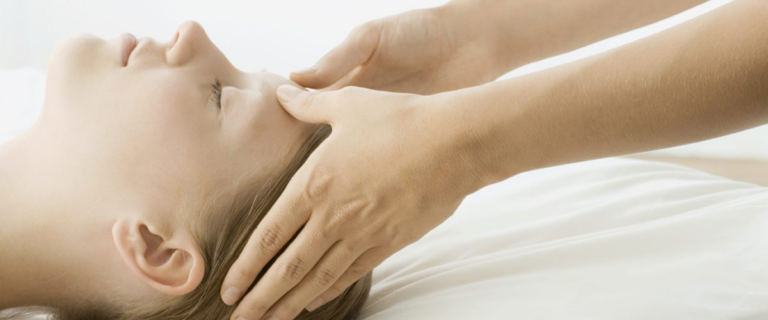
Reiki is an old healing method. It employs vitality to promote health and equilibrium. This article examines different aspects of Reiki sessions. For instance, can one talk during the session? Does it work as a complete medicine? What should a person wear for treatment? Let us therefore explore these basic questions as we try to understand more about Reiki practices.
How Important is Communication in a Reiki Session?
Communication is crucial in a Reiki session as it helps establish trust and understanding between the practitioner and the client. It allows the client to express any concerns or intentions, guiding the practitioner in focusing energy where needed. Open dialogue enhances the healing process, ensuring a personalized experience.
In fact, effective communication starts even before the necessary session at hand, so that the practitioner can personalize the experience for the client based on their unique needs. During the session, there will be verbal or non-verbal communication regarding sensations or adjustments one may need. Stress is reduced and a sense of relaxation is felt when it is clear what is going on between both the healer and the client, maximizing the possibility of healing benefits from Reiki. Such collaboration makes the session more meaningful and transformational.
What Should I Communicate to My Reiki Practitioner?
Share your health history, current concerns, and healing goals with your Reiki practitioner. This information helps tailor the session to your needs, focusing energy on areas requiring attention. Discuss any discomfort or sensations during the session to adjust techniques if necessary.
Be open about any physical or emotional challenges you may be having, as this helps the practitioner guide the healing energy toward the specific areas. If there are any preferences or expectations for the session, let them be known to the practitioner so that he can adjust his environment in ways that would align with your healing process. By doing this, transparency will establish a line of trust between you and the practitioner, and thus the session can be made as beneficial and aligned with your intentions as possible.
Can I Talk During a Reiki Session?
You can talk during a Reiki session, but it’s best to keep communication minimal to maintain relaxation and focus. Inform the practitioner if you experience discomfort or need adjustments. Brief interactions are encouraged if necessary, ensuring the session remains effective and calming.
Although there is normally no talking to promote a deep state of relaxation, a client may speak up if they are uncomfortable or have questions about the process. Many practitioners check in at the beginning and the end with the clients to bring up issues or clarify questions, but very little interaction takes place during the actual session to create a peaceful environment. That balance makes the session interactive, yet very restorative.

Why Does Clothing Matter in a Reiki Session?
Clothing matters in a Reiki session because it affects comfort and energy flow. Wear loose, breathable fabrics that allow for relaxation and ease of movement. Comfortable clothing helps maintain focus on the healing process rather than physical distractions. Avoid restrictive clothing or accessories that may hinder energy transmission.
Appropriate clothing enhances the effectiveness of the session; attention will be on healing and not tugging or readjusting. Breathable fabrics like cotton would not affect the body temperature, which also facilitates the free flow of energy throughout the body to enhance the effectiveness of the session. Such comfortable clothes will enable the client to remain present, relaxed, and open to receiving Reiki’s healing benefits.
What Should I Wear to a Reiki Session?
Wear loose, comfortable clothing that allows for easy movement during a Reiki session. Choose natural fabrics like cotton for breathability and comfort. Avoid tight-fitting or restrictive clothes that may hinder relaxation and energy flow.
Few or no accessories should be worn to avoid any type of distraction and create an atmosphere of peace. The more comfortable one is, the more relaxed and freely flowing the energy will be during the session. Not necessarily casual but natural, unconfined clothes will ensure a peaceful healing-oriented session. Wearing very minimal jewelry or other accessories enhances such a peaceful atmosphere and helps both practitioner and client remain focused on the healing process.
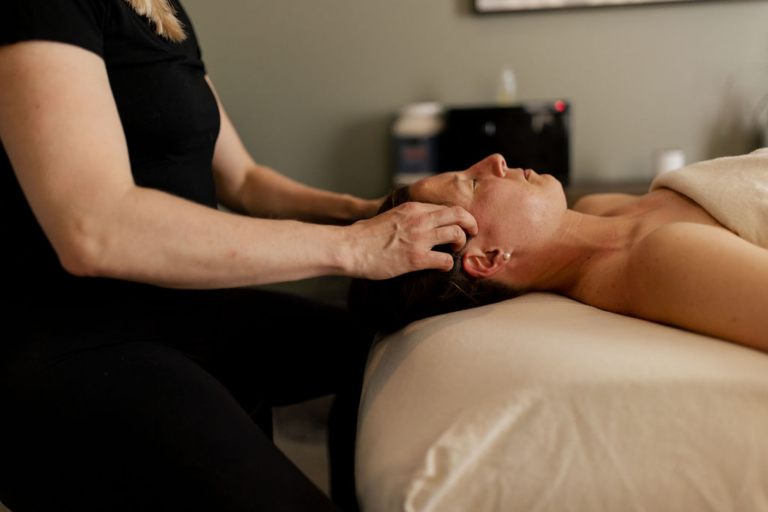
How Does Clothing Affect Energy Flow in Reiki?
Clothing can influence energy flow in Reiki by either facilitating or obstructing the body’s energy centers. Loose, natural fabrics allow energy to move freely, enhancing the session’s effectiveness. Tight or synthetic clothing may block or disrupt energy channels, reducing potential benefits.
Comfort and relaxation are essential to the free flow of energy. As clothes fit loosely and comfortably, they shall not interfere with the flow of energy, just like the water flows freely in a wide and unblocked channel. Tight or constricting clothing may Should I Remove Shoes During a Reiki Session?
Should I Remove Shoes During a Reiki Session?
Removing shoes during a Reiki session is recommended to promote relaxation and enhance energy flow. Bare feet allow for a more grounded connection, improving the body’s receptivity to healing energy. It also adds to the comfort and tranquility of the session.
This practice is often advised by practitioners in order to achieve optimal results. The shoes are sometimes a barrier between the body and the ground and interfere with the free flow of energy in the body. By removing the shoes, clients can have a close, distinct connection with the Earth, which will offer a firm platform upon which healing energies can flow unrestricted. Therefore, this practice further reinforces the practitioner-client bond and will make the clients feel more relaxed and receptive.
Conclusion
It is common practice not removing any part of your dress code while going through a reiki session so communication between patients & practices may vary depending on individual preferences. As you think about incorporating Reiki into your well-being regimen, keep an open mind and consult certified practitioners who will enable you to realize maximum benefits from this mode of treatment.
References
Reiki Healers
Reiki is an ancient healing practice that has gained considerable recognition in the wellness industry because of its holistic perspective on health and well-being.

In the world of alternative medicine, Christians have been questioning Reiki as a way to heal their bodies holistically. They want to know if this Japanese technique for channeling energy aligns with Christianity or not. This article presents different opinions on the matter.
Is Reiki compatible with Christianity?
Reiki is compatible with Christianity for some, as both emphasize healing and compassion. However, concerns arise over Reiki’s spiritual origins and perceived conflicts with Christian beliefs, prompting debate. Individual interpretations of faith and personal comfort levels influence views on compatibility.
There is a certain resonance between Reiki and practices of the Christian faith in that they both encourage healing through natural practice, love, and compassion. They can see Reiki as a healing tool to complement prayer and spiritual practices. Some are also worried about the actual origins of Reiki within Eastern spiritualities and its compatibility with the Christian faith.
This struggle primarily deals with the nature of energy healing and its apparent spiritual implications. Any Christians who would want to practice Reiki should consider their belief and consult with their spiritual leaders to evaluate whether this does not transgress faith and values.
Can Christians practice Reiki without compromising their faith?
Christians can practice Reiki without compromising their faith by focusing on its healing aspects and maintaining a Christ-centered approach. Ensuring that Reiki aligns with Christian values and seeking guidance from spiritual leaders can help navigate potential conflicts and ensure harmonious integration.
They can view Reiki as a system of prayer or as a way of expressing God’s love in the sense that one can heal through touch. Keeping the relationship with Christ first and ensuring Reiki practices do not contradict core beliefs, a Christian is hence at liberty to use Reiki as a supplement to personal and spiritual growth. Keeping the lines of communication open with spiritual leaders and fellow believers can help in seeking further assistance and clarity on integration.
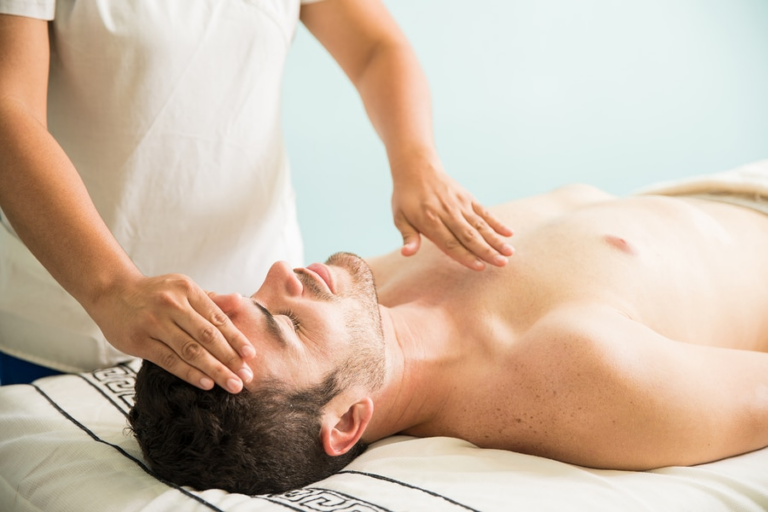
What do Christian leaders say about Reiki?
Christian leaders are sharply divided on Reiki; some find it compatible with healing ministries, while others warn of its spiritual origins. It would seem that opinions differ based on theological perspectives, and underscore individual discernment, and discussion with a trusted spiritual adviser.
Some Christian leaders do accept the use of Reiki as a healing technique since it is regarded as an action that reflects the love and compassion of Christ. Some include Reiki in healing ministries, touting its therapeutic benefits. Others raise questions about Reiki’s origin in Eastern spirituality and find a clear conflict between it and the tenets of Christianity.
These leaders might go so far as to warn or even discourage its use, as believers should seek healing through prayer and other more Christian, accepted means. Open discussion with spiritual leaders and other believers will help the person using Reiki within these differing viewpoints come to an open, informed decision.
How can Reiki be integrated into Christian healing practices?
Reiki can be integrated into Christian healing practices by emphasizing prayer, compassion, and love. Practitioners can view Reiki as a form of hands-on healing that complements prayer and faith-based healing, ensuring it aligns with Christian values and supports spiritual well-being.
They may initiate their Reiki sessions from prayer by seeking the guidance and protection of the Holy Spirit and employ Reiki to express the love and compassion of God. The incorporation of Reiki practice among Christians, therefore, elevates the spiritual practice through the provision of holistic nurturing within the framework of the community that seeks its healing. It is important to clearly communicate with clients on their faith and intentions, so that Reiki sessions can be tailored in a manner that would align their spiritual beliefs.
Are there biblical references that support Reiki practices?
There are no direct biblical references supporting Reiki, but principles of healing, love, and compassion align with Christian teachings.
Some consider the healing ministry of Jesus himself as a precursor to Reiki’s technique of compassion touch and energies; others argue that within Christianity, one should remain strict about practice and resort to more conventional means for healing. Although the Bible does not address Reiki or energy healing directly, the concepts of healing and compassion appear time and again in scripture.
Most often, the healing ministry of Jesus Christ is cited as an example of laying on of hands with the intent to heal, which some Christians feel is somewhat concordant with Reiki. Some say that the only way to heal is through prayer and the power of God, which to them separates Reiki from the teachings of the Bible.
Individual interpretation and understanding of scripture therefore influence how believers perceive Reiki’s compatibility with Christian values. Contemplative faith and seeking help from religious or spiritual leaders will be important sources of insight for Christians with this multi-faceted problem.
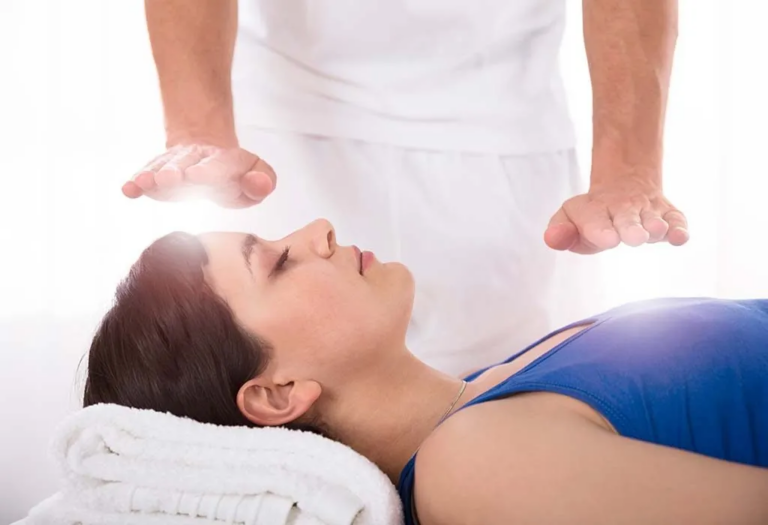
What concerns do some Christians have about Reiki?
Some Christians have concerns about Reiki due to its spiritual origins, potential conflicts with Christian beliefs, and perceived lack of biblical support.
Issues such as these support the need for individuals to practice discernment and to consult with spiritual leaders in learning about methods like Reiki and the compatibility of such methods with personal views of faith and values. Concerns about Reiki among Christians derive primarily from its East Asian spiritual lineage, and because it is believed to involve the manipulation of energy in a non-biblically sanctioned manner.
Others even go as far as fearing Reiki might lead to spiritual confusion or conflict with some of the central principles of Christianity. Such fear-based concerns really highlight the call for critical thinking and an open, informative discussion in faith communities.
Christians should, in their contemplation regarding Reiki, examine their beliefs, consult spiritual mentors, and be clear on how far they are willing to commit to the spiritual conflicts of self-relations to their faith. Through discernment, the believer can make decisions that are appropriately fashioned to the integrity that his or her faith demands.
How can Christians approach Reiki with discernment?
Christians can approach Reiki with discernment by researching its principles, consulting spiritual leaders, and praying for guidance. Ensuring that Reiki aligns with personal beliefs and values is crucial for maintaining a Christ-centered approach and making informed decisions about its practice.
Christian should consider these things prayerfully, seeking godly wisdom and direction of the Holy Spirit to be able to get on top of a very complex issue. It would also be very worthwhile for a Christian seeking their counselor in a circle of spiritual leaders, trustworthy advisors, and other believers when evaluating whether the practice of Reiki is compatible with their faith.
With this focus, they would be empowered to look to their own community of faith and make the decision regarding incorporating Reiki techniques into their practice. It allows for thoughtful investigation and discussion, which will enable believers to hold to their beliefs while, at the same time, being open to new ways of healing and personal development.
Wrapping Up!
Whether Christianity allows for participation in reiki largely depends on one’s personal beliefs and interpretation of teaching. Christians who wish to try out such an alternative form of therapy should therefore deliberate carefully upon it. Also, they need to seek counsel from their spiritual mentors so that whichever decision is made at last is grounded not only on faith but also on knowledge acquired through weighing its advantages against disadvantages.
Reiki Healers
Reiki is an ancient healing practice that has gained considerable recognition in the wellness industry because of its holistic perspective on health and well-being.
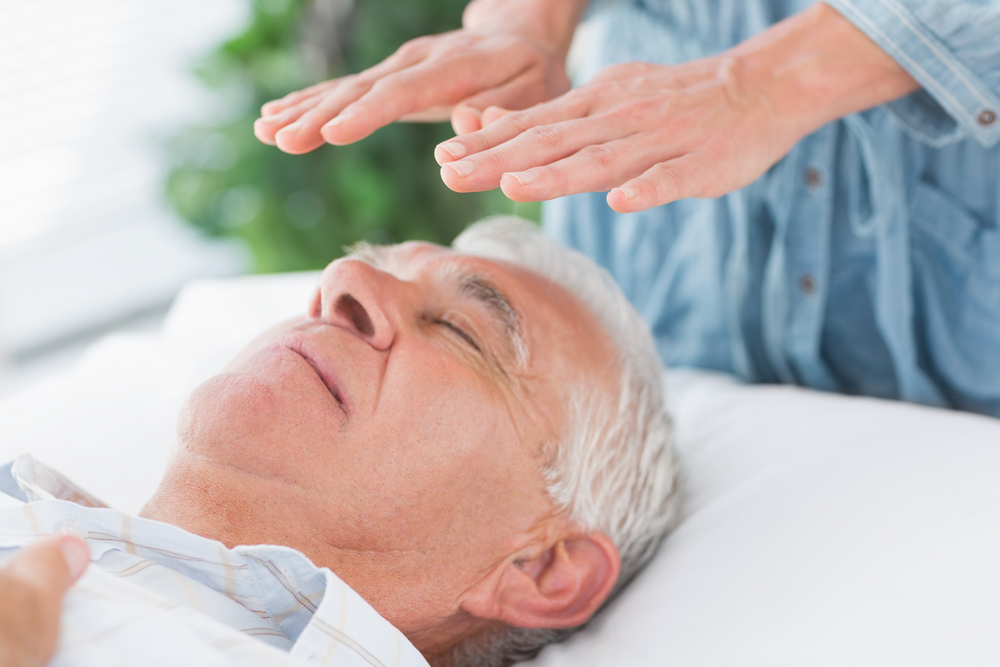
Reiki is a form of Japanese healing technique known for irs calming benefits. However, on some occasions some individuals might feel a bit uncomfortable during the sessions. So come, and learn the reason behind this discomfort that you might feel.
What's the Reiki Healing Process?
The Reiki healing process involves a practitioner gently placing hands on or near the body, channeling energy to balance and support physical, emotional, and spiritual well-being.
Reiki refers to an alternative healing approach, which involves transferring universal life force through the palms of the therapist up to the patient. Its purpose lies in facilitating alignment of the body energy systems leading to physical, spiritual and emotional wellness.
This method entails channeling energies through a reiki healer during sessions to unblock any congestion in a person’s system. This may result in different responses since it allows your body to regain balance once again.
What is the risk of Reiki?
The risk of Reiki is minimal, mainly involving potential emotional release during sessions. However, it’s not a substitute for medical treatment or diagnosis.
Reiki is generally safe with very low risks. It involves very light touching or no touching at all. Some individuals may experience mild side effects like tiredness, headaches, or a release of emotions that last for a short period of time.
The main issue comes up when someone uses this therapy alone as a treatment for serious medical conditions without the support of traditional medicines. It must be stressed that this therapy should be administered only after seeking proper medical advice.
What Are Common Post-Reiki Reactions?
Common post-Reiki reactions include deep relaxation, emotional release, lightness, or fatigue. Some may experience mild detox symptoms, such as headaches or mood changes, which are temporary.
After a Reiki session, some people may have physical problems such as headaches, nausea, fatigue, muscle pains, etc.
This procedure can also make people feel emotional and have mental reactions like mood swings, increased sensitivity, clear dreams, and mental fog or clarity
Why Do People Feel Sick After Reiki?
People may feel sick after Reiki due to emotional release or detoxification, as the body’s energy shifts and begins to process and release stored tension or toxins.
This therapy might stimulate the body’s natural detoxification processes. Toxins are released through reiki therapy. These toxins are eliminated by the bloodstream during circulation throughout the body, which might cause temporary discomfort.
The movement of energy during this therapy results in increased blood flow that could cause dizziness or nausea until one’s body adjusts to this change.
This treatment aligns chakras, thereby triggering temporary physical or even emotional disturbances.
The relaxing impacts of this therapy may bring suppressed emotions to the surface leading to emotional turmoil. Although beneficial in the end, this process can be challenging.
In individuals who have experienced trauma before, this energy therapy might prompt self-healing, causing temporary discomfort as past wounds are addressed.
In some cases, people may experience a “healing crisis” meaning that symptoms temporarily get worse before they improve. It is often understood as an indication that healing has started.
This procedure can speed up the natural healing processes of the body, which might cause momentary discomfort as the body works to resolve long-term problems more quickly than it normally would.
Some people can be more sensitized to energy than others. These types of individuals may have stronger responses to this therapy and might get sick or overwhelmed with emotions.
How To Deal With Post-Reiki Reactions?
To handle post-Reiki reactions, stay hydrated, rest, and allow emotional processing. Light exercise and healthy eating can also help ease temporary discomfort or symptoms.
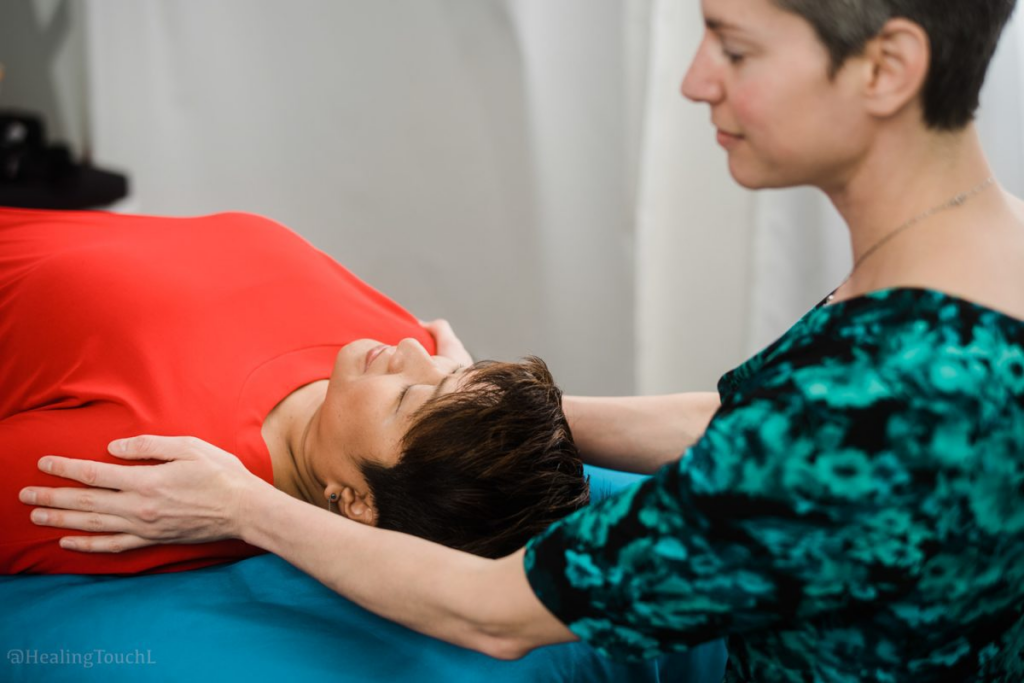
To ease post-Reiki discomfort: stay hydrated, rest and give your system time to assimilate energy. Opt for gentle workouts like walking or stretching. Try to ground yourself with time in nature. Consume Healthy and easy-to-digest meals.
Talk about your reactions with your Reiki healer, who may provide insights, adjust upcoming sessions, or guide you on how to manage the symptoms. Consider reducing session times or spacing out treatments if you are highly sensitive to this energy based healing in order to enable your body to get accustomed through gradual exposure.
Understand that short-term discomfort can be a part of the healing process. Be open and patient with this alternative healing method letting it take its time as the body could undergo an integration process.
Although most post-reaction risks are temporary and harmless, consult a healthcare professional whenever they persist or worsen, especially if one is suffering from pre-existing conditions.
What Are The Long-Term Benefits of Reiki?
Long-term benefits of Reiki include reduced stress, enhanced emotional balance, improved mental clarity, better sleep, and support for overall well-being and healing over time.
Despite potential short-term discomfort, many people experience significant long-term benefits, including: reduced stress and anxiety, improved sleep quality, enhanced overall well-being, greater emotional balance, increased energy levels and better management of chronic conditions.
Does reiki really heal?
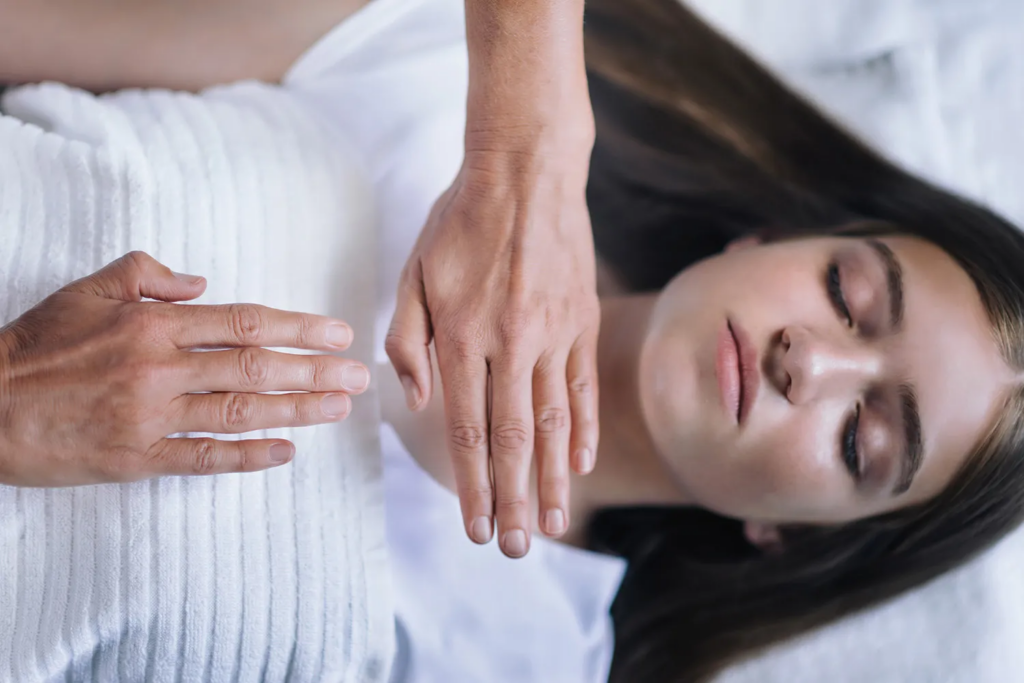
Reiki is believed to support healing by promoting relaxation and balancing energy, though scientific evidence is limited, and its effects vary among individuals.
Reiki healing is based on believing in unseen forces of life flowing through us. Many people feel relaxed or energized after a therapy session but scientific proof regarding its effectiveness is weak and mixed.
Some studies suggest possible relaxation and stress reduction but more rigorous research is required for the confirmation of such claims. Whether it’s “real” or not depends on personal belief and experience. It is often considered a complementary modality rather than a primary healing method.
What happens when you practice Reiki every day?
Practicing Reiki daily can enhance relaxation, improve emotional balance, and support overall well-being. However, individual experiences vary, and consistent practice may deepen personal insights and healing.
Practicing Reiki every day may possibly result in a tranquil, restful, and balanced feeling. It is usually believed that regularly engaging in this exercise can reduce anxiety and uplift your mood or even emotional stability. Improved self-awareness and spiritual growth are said to be experienced by some reiki healers.
Nonetheless, individual experiences vary greatly and largely depend on one’s own openness and trust in the technique itself. One must bear in mind at all times that this therapy should always go hand in hand with other health practices and treatments.
Conclusion
It is actually quite common for people to feel a bit sick after receiving this therapy as the body heals and rebalances itself. Learning about the side effects can assist individuals in managing their symptoms after a Reiki session. Remember that the experience with this therapy varies from person to person.
References
Reiki Healers
Reiki is an ancient healing practice that has gained considerable recognition in the wellness industry because of its holistic perspective on health and well-being.
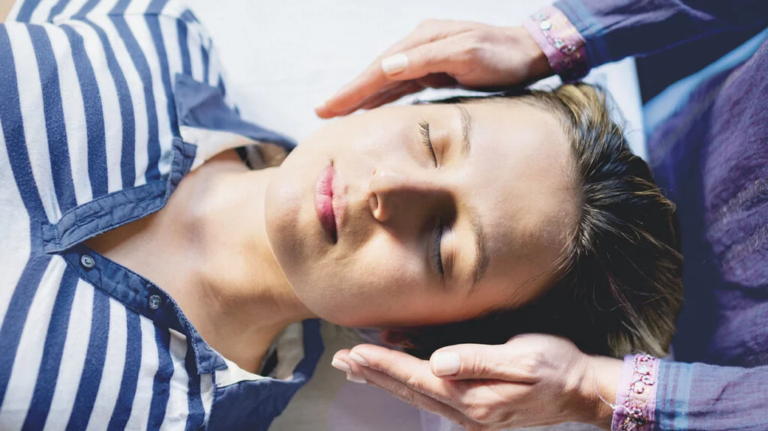
Reiki, a kind of therapy that started in Japan, is now known worldwide as an alternative approach to relaxation and cure. One should note those who may not benefit from or should avoid Reiki sessions as its popularity spreads. This talk touches on specific groups who may not be suitable for reiki.
Who Should Avoid Reiki?
Individuals with certain mental health conditions, like severe anxiety or psychosis, should consult a healthcare provider before Reiki. Those skeptical of energy healing might not benefit fully. Pregnant women and those with pacemakers should seek medical advice to ensure Reiki aligns with their health needs.
While Reiki is relatively safe, there are some conditions for which the individual should consult their health professional about their particular situation. Those who do not believe in energy healing will not benefit from its potential, and those with pacemakers and other devices should be especially concerned about safety from potentially dangerous interactions.
Can Reiki Replace Medical Treatment?
Reiki should not replace conventional medical treatment. It is a complementary therapy that can enhance well-being alongside traditional healthcare. Always consult with a healthcare provider to integrate Reiki safely into your treatment plan and ensure it aligns with your overall health strategy.
Reiki is designed to augment, not replace, conventional medical treatment. It may be used for relaxation and the reduction of stress as part of a multi-dimensional healing approach. The coordination of this therapy with healthcare professionals should be integrated safely and effectively.
What Are the Essential Benefits of Reiki?
Reiki offers benefits like stress reduction, relaxation, and improved emotional balance. It can enhance overall well-being and promote healing by aligning energy flow. As a complementary therapy, Reiki supports the body’s natural healing processes and can be integrated with conventional medical treatments.
Reiki is a technique aimed at bringing equilibrium and harmony to body, mind, and spirit. In addition to lessening tension and creating relaxation, it may support the development of peace and well-being. Being regularly treated would help in dealing more effectively with stress and thus improve the quality of life.

How Is Reiki Different from Other Healing Modalities?
Reiki is unique in using universal life force energy to promote healing, focusing on balancing energy fields in the body. Unlike massage or acupuncture, Reiki involves minimal physical contact and can be performed without direct touch, emphasizing relaxation and energy alignment.
It is gentle, not invasive, and differs from all other healing methods on the basis that it works on the flow of energy and brings it into balance. Reiki can be done in a variety of settings—even from a distance—and is generally characterized as being very calming and restorative.
What Are the Potential Risks of Reiki?
Reiki is generally safe, with minimal risks. Some individuals might experience emotional release or fatigue after sessions. It should complement, not replace, medical treatment. Always inform your practitioner of any health concerns to ensure a safe and effective Reiki experience.
Being non-invasive, Reiki presents very little risk to most people. However, it is a therapy that must be approached inclusively as part of a holistic health strategy, not on its own. Open communication with both your healthcare provider and Reiki practitioner can help maximize its benefits.
How Does Reiki Work to Promote Healing?
Reiki promotes healing by channeling universal energy to balance the body’s energy centers or chakras. This balance can enhance relaxation, reduce stress, and support the body’s natural healing processes, improving physical, emotional, and spiritual well-being.
Energy imbalances are considered by Reiki practitioners to be the cause for physical and emotional problems. Restoring balance, Reiki will support total health and vitality. Its gentle, nourishing nature makes Reiki a great preference for those seeking holistic approaches to healing.
What Should I Expect During a Reiki Session?
Expect to lie fully clothed on a massage table during a Reiki session while the practitioner gently places hands on or near your body. The session, lasting about an hour, focuses on relaxation and energy flow, with potential sensations of warmth, tingling, or deep peace.
Reiki creates a calm and serendipitous atmosphere that promotes healing. Specific hand positions can be used, focusing on areas of concern, and almost all clients leave with renewed energy and relaxation in their minds and bodies. One may further communicate effectively with the practitioner to better the session.
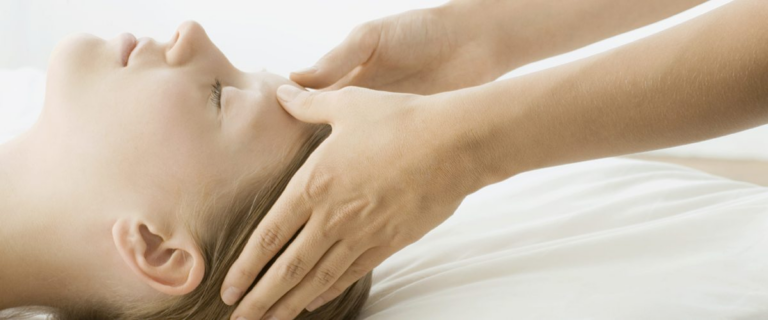
Is Reiki Effective for Mental Health Issues?
Reiki can be a supportive therapy for mental health, aiding in stress reduction and emotional balance. While not a substitute for professional treatment, it may complement conventional therapies for anxiety and depression by promoting relaxation and overall well-being.
Many state that Reiki makes them feel calmer and more clear—more able to deal with stress and emotional upsets. When integrated with other forms of treatment, Reiki allows the individual to integrate their own treatment plan toward complete healing, satisfying the necessaries of the physical and emotional self.
How Can I Find a Qualified Reiki Practitioner?
To find a qualified Reiki practitioner, seek referrals from trusted sources, check credentials, and read reviews. Ensure they have proper training and experience in Reiki. Meeting the practitioner beforehand can help ensure a comfortable and trustworthy environment for your sessions.
Looking for a Reiki practitioner would, therefore, entail searching for someone with the proper background and certifications. Their level of expertise and how they go about treatment could only be judged through personal references or online reviews. It is important that one builds a rapport with the healer before sessions are undertaken.
Can Children Benefit from Reiki Sessions?
Children can benefit from Reiki sessions, experiencing relaxation and stress reduction. As a gentle, non-invasive therapy, Reiki can support emotional balance and overall well-being. Parental consent and involvement are essential to ensure the child’s comfort and safety during sessions.
Reiki provides a nourishing, soothing environment that can enable children to learn control over their stress and anxiety. Parents should discuss with the practitioner the needs of the child so that he or she may adjust the sessions accordingly. It is the nurturing aspect that makes Reiki an ideal method for children who are emotionally and physically out of balance.
Conclusion
In conclusion, there are numerous potential advantages of adopting a holistic approach like ReikI, especially for those seeking alternatives to surgery. However, ensuring that you consult a qualified practitioner or your healthcare provider before initiating any reikI sessions that align well with what your body requires to ensure its well-being would be advisable.
References
Reiki Healers
Reiki is an ancient healing practice that has gained considerable recognition in the wellness industry because of its holistic perspective on health and well-being.
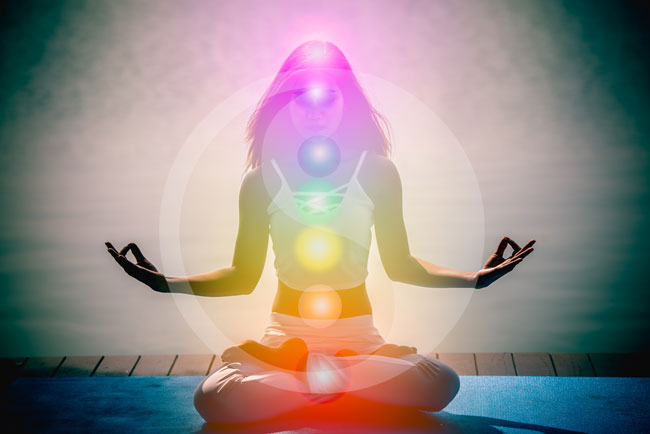
Reiki is a popular worldwide form of energy healing that originated in Japan because it is believed to be able to provide relaxation and restore health. Despite its widely perceived comforting and curative nature, there are risks associated with Reiki that must not be overlooked.
What are the risks of Reiki?
The risks of Reiki include emotional dependency, unqualified practitioners, and neglecting conventional medical treatment. While generally considered safe, these risks can impact effectiveness and well-being.
Consequently, by assessing the limitations of Reiki and combining it with medical treatment we can guarantee a balanced use of this method to achieve holistic health. This often leads to emotional dependency as clients may find themselves relying on Reiki for their emotional comfort instead of dealing with their issues.
Furthermore, some practitioners who lack proper training offer therapies that do not work or even worsen people’s conditions. In addition, there is a delay in necessary medical treatments when patients rely solely on Reiki leading to compromised health statuses. Combining the two approaches helps to reduce these risks for better living.
Can Reiki cause emotional dependency?
Yes, Reiki can cause emotional dependency when clients seek frequent sessions for temporary relief. This reliance may hinder personal growth, emphasizing the importance of using Reiki responsibly alongside other self-care strategies to promote emotional well-being and independence.
The relaxation and emotional support offered by this technique can make clients prefer using it instead of addressing any underlying problems independently. Such a relationship could stop people from gaining required coping skills thus derailing personal growth within them.
This requires practitioners to urge clients to incorporate other self-care strategies including meditation, and physical fitness exercises along with counseling in which they also need to practice its use as part of a broader self-care program tailored across different life aspects. A more dignified approach to applying this remedy should be adopted, otherwise, it would end up being an addictive therapy.

Are there risks of using Reiki for serious medical conditions?
Yes, when Reiki replaces necessary medical care, it can be a threat to life. Reiki should never replace professional healthcare but just complement it.
If Reiki is misused as the primary therapy, it can result in delaying essential interventions, worsening the condition, and causing severe health consequences.
Those who prefer using Reiki to medically tested procedures put themselves at risk of inadequate treatment for critical health conditions. It is not possible for Reiki alone to deal with complicated medical problems. People should tell their clinicians about any reiki practice they may have started doing so that this complements rather than substitutes essential medical therapies.
This approach will ensure that although people are taking into consideration other factors they still receive appropriate medicinal support in addition to getting holistic care from both sides of medicine and complementary therapies respectively thus ensuring the safe and effective use of reiki.
How can unqualified Reiki practitioners pose a risk?
Unqualified Reiki practitioners pose risks by offering ineffective or harmful sessions and misleading advice. They may fail to recognize conditions requiring medical attention. Ensuring practitioners are certified and reputable is essential for safe, effective Reiki experiences and protecting clients’ health and well-being.
Without proper training, practitioners may not understand the principles of energy healing or adhere to ethical standards, leading to subpar care. They might provide inaccurate guidance that could delay necessary medical interventions. Clients should verify practitioners’ credentials, seek recommendations, and trust their instincts when selecting a Reiki professional. This helps ensure that the practitioner is qualified to provide safe, effective care and minimizes the risk of negative outcomes. Choosing certified practitioners committed to ethical practices ensures Reiki sessions are beneficial and trustworthy.
What are the ethical concerns in Reiki practice?
Ethical concerns in Reiki practice include maintaining client confidentiality, avoiding false claims about healing powers, and ensuring informed consent. The practitioners must therefore respect the client’s welfare by being truthful and professional in their services to them.
Hence, ethical Reiki practitioners should educate clients on how it works, its benefits, and its limitations while managing expectations. This implies that they should not say that they can cure certain diseases but instead offer support as people receive conventional treatment alongside it. In order to maintain the trust of clients and protect their privacy a practitioner must observe rules regarding confidentiality.
Thus as far as possible it is important for customers to be aware if anything goes wrong during any medical procedures taking place on them at that time if ever those happens then there can be informed consent so that one cannot complain later having been done to him something he did not want or know about. Also these individuals must continuously learn so as meet ethical demands for their profession.

Can Reiki interfere with conventional medical treatments?
Reiki is generally safe and unlikely to interfere with medical treatments when used appropriately. However, prioritizing Reiki over necessary medical care can delay essential interventions. It’s important to use Reiki as a complementary therapy, ensuring it supports rather than replaces conventional medical treatments.
As much as reiki may offer comfort to patients during this period; it does not substitute basic medical care at any given point in time. A doctor needs to know if one has received any reiki sessions and how this fits into the overall healthcare plan that has already been established for them/their patient.
This will prevent misunderstandings between the two groups brought about by miscommunication amongst themselves Pragmatic inclusion of both reiki healers’ interests (holistic approach) as well as respect for conventional medicine would thus produce favorable results among patients turned by fear of vetting mainstream medicine or mistaking it for alternative medication.
How does one minimize risks associated with Reiki?
Minimize Reiki risks by choosing qualified practitioners, maintaining realistic expectations, and using it as a complementary therapy. Verify credentials, communicate with healthcare providers, and ensure Reiki aligns with overall health goals for safe, effective use that supports well-being.
It is, therefore, important that clients seek out certified Reiki practitioners who have a positive reputation and experience. Open communication by the clients with the Reiki practitioners and healthcare providers will ensure a cohesive treatment plan that respects the boundaries and capabilities of each modality.
A client needs to have some realistic education on what Reiki can offer and use it as a support tool not as an independent treatment. Knowing the limitations of the therapy and applying it thoughtfully within the more significant health strategy will allow benefits to accrue to the maximum while the potential drawbacks are minimized, ensuring safety and benefits from the Reiki experience.
Wrapping Up!
While there are some probable advantages to Reiki, the process is not without risks. Being aware of issues such as dependency, unqualified masters or practitioners, and incorporating Reiki safely with conventional medical care provides a client with an informed choice. It is only through the assurance of safe practices
Reiki Healers
Reiki is an ancient healing practice that has gained considerable recognition in the wellness industry because of its holistic perspective on health and well-being.

The process of Reiki healing involves the transfer of healing energy from the palms of the practitioner to the patient. It has emerged as a popular holistic treatment in recent times. However, these sessions can sometimes be a bit costly. So, people wonder if Reiki is covered by insurance.
So go through this blog to learn about the current condition of insurance coverage for this therapy, factors to consider, and different alternatives.
What is Reiki?
Reiki is a Japanese energy healing practice that involves using hands-on or distant techniques to balance energy, promote relaxation, and support the body’s natural healing processes.
It is an energy-based healing method first introduced in Japan in the early 20th century. It is a technique where universal life force energy is transmitted through the hands of a practitioner into an individual. The Reiki healers believe that this flow can heal patients physically, emotionally, and spiritually.
A typical session implies that patients lie down fully dressed on massage tables. Their bodies are covered with the light hands of practitioners who may or may not touch them.
Some proponents say that it helps with relaxation, stress reduction, pain management, and general well-being. Some people use it along with traditional medicine and treatments.
This procedure usually takes about 60-90 minutes each time. First there is normally a short conversation regarding what the patient’s requirements and feelings are before they begin. During this process many therapists lay their fingers above or on specific parts of the patient’s body which includes necks , arms , legs , feet plus other areas that require healing .
There are also shorter sessions that take about thirty minutes, especially for people who just want to relax or get energized.
What Is The Current State of Insurance Coverage for Reiki?
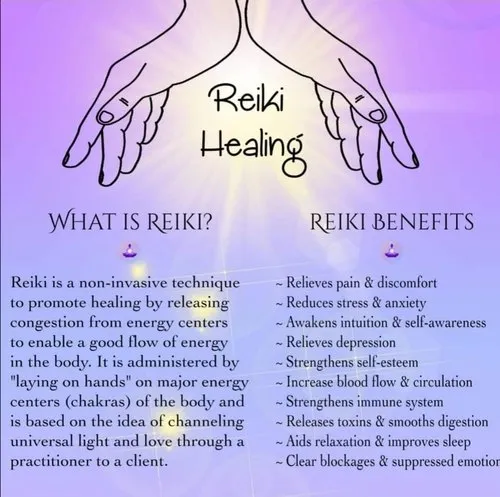
Insurance coverage for Reiki varies widely, with some plans offering partial reimbursement or coverage as alternative therapy. Check with specific insurance providers for detailed coverage options.
The majority of mainstream health insurers in the US don’t cover reiki as a stand-alone service because it is seen as an alternative or complement therapy, and there is very little scientific evidence to support its use in treating diseases.
However, sometimes, there are certain instances where insurance can partially cover Reiki sessions. The following are some examples:
In some hospitals, for instance, this therapy may be available through an integrative medicine program. In such situations, it could be covered by insurance if ordered by a physician as part of a care strategy.
Some states’ workers’ compensation programs may cover this alternative healing modality if it is considered advantageous to an employee’s recovery from work-related injury.
How Much Does Reiki Cost in the US?
In the US, Reiki sessions typically cost between $50 to $100 per hour, though prices can vary based on location and practitioner experience.
In the United States, prices for a single session of this therapy differ according to practitioner experience, location, and length of a single session. Typically, one-hour therapy sessions cost between $50 and $100 on average, while prices can reach up to $150 or even more per session in major cities or when dealing with highly experienced practitioners.
Customers seeking treatment discounts might want to look into package deals advertised by some providers or sliding scale fees based on income levels. Moreover, community centers or even associated schools may have reduced-cost or donation-based sessions for training purposes in this field.
What is Influencing Reiki Insurance Coverage?
Reiki insurance coverage is influenced by its recognition as an alternative therapy, varying state regulations, demand for holistic treatments, and individual insurance policies’ flexibility.
Insurance companies usually base their coverage decisions on proof-based medicine. The lack of proper scientific study backing it’s efficacy for specific health conditions is the reason why this treatment receives limited insurance coverage.
As compared to many conventional medical practices, there are no standardized licensing or regulation requirements for Reiki in most countries. Hence, insurance firms cannot easily ascertain whether practitioners’ qualifications or quality of care is up to the mark.
The cost-effectiveness of treatments is a measure used by insurers when deciding which ones to cover. Due to the lack of substantial evidence that shows the long-term benefits of this alternative healing method and its inability to reduce overall healthcare costs, insurers are reluctant to include it in their plans.
How To Find Your Way Through Insurance Coverage?
To find Reiki insurance coverage, review your policy, contact your provider, ask your practitioner for documentation, and consider wellness plans offering alternative therapy coverage.
It is important that you reach out directly to your insurance company if you want to receive treatment from Reiki healers. Ask them about their policies regarding alternative and complementary therapies and find out if there are any conditions under which this therapy may be covered.
Some employers have wellness programs that cover alternative therapies. Check if such options exist at your workplace by consulting with your human resource department.
Certain medical facilities offer integrative medicine programs that consist of alternative healing methods like Reiki treatment. In case such institutions accept payment through your insurance provider, then you can get access to this therapy in addition to other services being offered as part of a comprehensive treatment plan.
What Alternative Access Approaches For Meeting Reiki Cost?
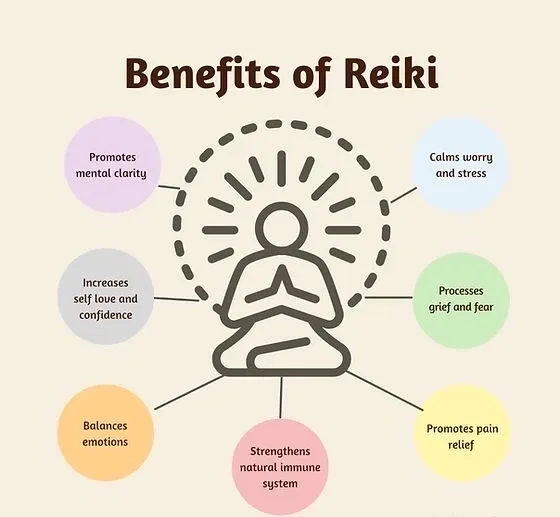
Alternative approaches to affording Reiki include seeking sliding scale fees, attending group sessions, finding community-based programs, or exploring wellness packages and discounts offered by practitioners.
Many patients who look for Reiki therapies decide to pay in cash. Although this may cost more, it gives them the freedom to choose the therapists and the number of treatments they want.
Some Reiki healers have a sliding scale fee, which is tied to income levels so that even more people can afford treatment. Furthermore, community clinics or wellness centers could have discounted prices.
A lot of healers offer courses through which one is taught how to administer this therapy unto one’s own self and others. This can be a cheaper means in the long run for those interested in making this therapy part of their health routine.
Is There Any Future of Reiki and Insurance Coverage?
The future of Reiki and insurance coverage may expand as demand for holistic therapies grows, but widespread coverage will likely depend on more scientific validation and consumer advocacy.
There has been increased research on the applicability of Reiki as there is growing interest in alternative forms complementary therapy. In case future surveys demonstrate that there are clear health advantages, insurance firms might change their mind towards covering it.
Alternative medicine lobbying groups are working hard towards modifying healthcare policies, insurance regulations among others. They hope this will facilitate eventual acceptance as well wider coverage for this type of therapies by such organizations.
With more healthcare providers accepting holistic practices as possible remedies, there may be an increase in conventional medical structures integrating things like Reiki. As a result, many insurance options could open up.
Conclusion
Even though most mainstream health insurance plans do not cover expenses incurred through Reiki’s services, some non-mainstream options exist. As research continues, it impacts how healthcare is offered, hence changing the way health insurers cover alternative healing methods. In the meantime, individuals interested in this therapy can explore various avenues to access this complementary healing practice.
